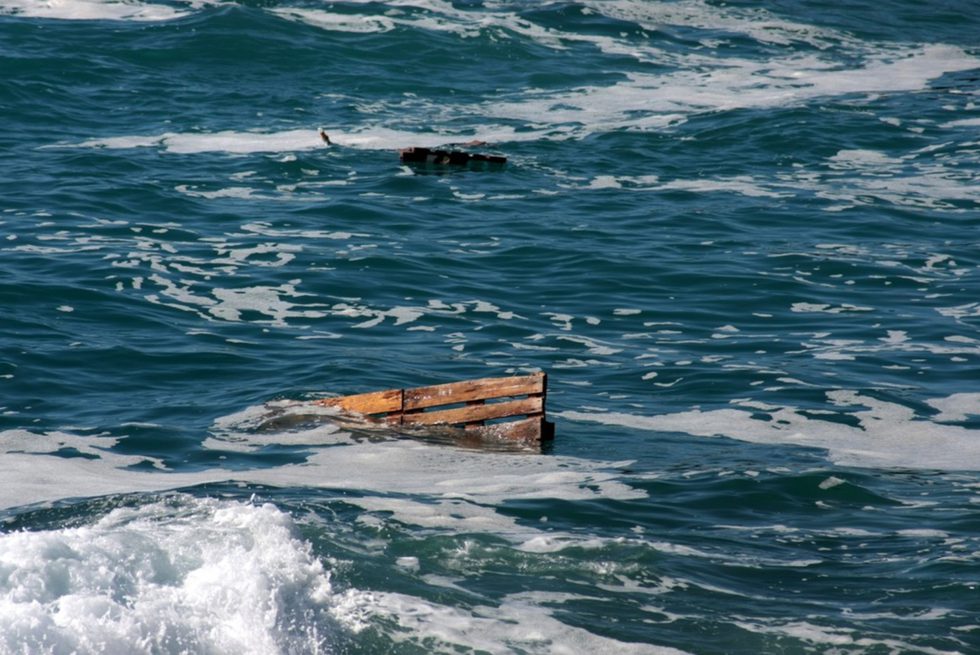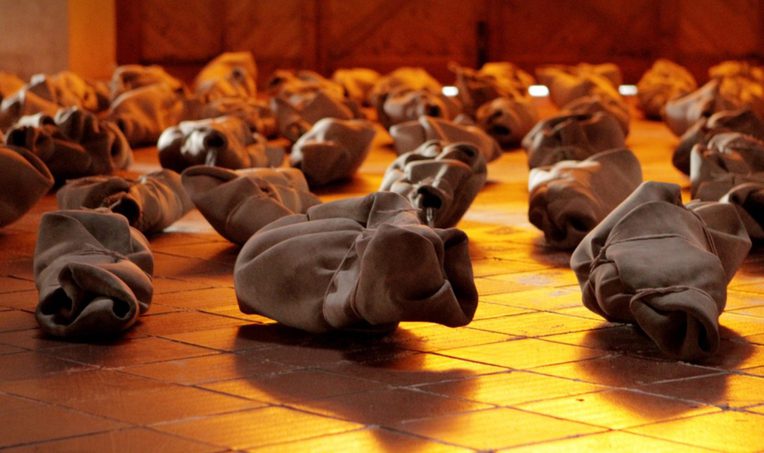Catastrophes
From the Series: Refugees and the Crisis of Europe
From the Series: Refugees and the Crisis of Europe

The images of multitudes of people debarking from boats, being rescued at sea, walking along railways, or cutting through walls of wire have overrun our social imaginary and our understanding of the most recent developments of what has been called the European refugee crisis. In disagreement with the temporality of the crisis, which calls for quick interventions and solutions, I want to pause and challenge the categories of catastropheand emergency. Both are categories of recognition through which sovereign power turns the crisis into a state of emergency, something it can deal with by the use of special powers granted during such periods. These images and categories are deceptive and duplicitous as they simultaneously show and hide different forms of life. I reflect here on the temporality that these state-imposed categories imply by proposing other ways of seeing and listening to these events and by separating catastrophe from the temporality of emergency in which it has been contained. What we experience as a catastrophe has the potential to open up new forms of life and politics. However, to do so it must not be reduced to a state category of recognition that translates the disruptive power of the present into a site of control and intervention, begging for quick and clear-cut bureaucratic solutions and representations.

Two other sites tell different stories of migration and violence outside the register of emergency, grounded instead in the everyday, ordinary rhythms of migration. One site is an ethnopsychiatric clinic, the Frantz Fanon Center in the city of Turin in northern Italy, where I conducted research and where stories of personal and collective trauma challenge the idea of migration as a linear process whereby one arrives, integrates, and becomes a new citizen-subject. Trauma theories also question the idea that the most important event in someone’s life is the moment of border crossing. Through trauma, we can listen beyond the immediacy of the catastrophe/emergency and pay attention to the stumbling temporalities of symptoms, repetitions, and the unfolding of fragmented memories.
The other site is the fields of southern Italy, where seasonal workers are involved in forms of exploitation known as caporalato: a system in which agricultural workers are illegally hired, paid below the national minimum wage, and put to work in precarious conditions often leading to death. In this context, too, the category of catastrophe prevents us from perceiving the longue durée of this kind of violence and the extent to which state categories of recognition misrecognize experiences of ordinary migration. Experience exceeds categories. In these fields, ordinary deaths are made invisible by the eye-catching light shed on the crisis in the Mediterranean and at other European borders.
For example, in 2008, in Castel Volturno, a town in southern Italy near Naples, the local mafia killed six African seasonal construction workers. Around the same time, in the nearby town of Rosarno, African migrants took to the streets to protest organized crime after the local mob murdered several migrants. Last summer, other deaths—of foreigners and Italians alike—were reported in these same places where criminal organizations control everything, from jobs and wages to housing and immigration documents. Local mafias tolerate foreigners because they provide cheap labor; in this way, they often offer the recognition and protection that the state is incapable of offering to economic migrants, especially in the South. This is a lawless kind of recognition that originates from unrecognized rights and operates with merciless violence. This has a deep impact on foreigners who come to Italy in search of jobs, and who do not qualify as political refugees or as victims.
Many of the people entering Europe under the paradigm of political emergency will become part of this growing, unrecognized workforce, where the threshold between legality and illegality, life and death is almost invisible. These sites of illegal labor show another aspect of what might be called the new slavery. Slavery, here, does not signify bodies trafficked on rickety boats, but rather bodies reduced to docile and passive labor, deprived of quotidian access to services and rights. These are some of the conditions that the register of crisis erases, focusing the urge to intervene on the bodies of those who qualify as refugees. There is a blindness to this kind of discourse, which is able to see only itself. Those rejected at the border will be repatriated. But those jubilantly welcomed (as occurred in Munich last summer, to the sound of Beethoven’s “Ode to Joy”) will disappear within the depressed economy of southern Europe.
Understanding the present moment as a catastrophe implies looking at migration as an extraordinary event and thereby ignoring its ordinariness. I don’t deny that current events have catastrophic aspects, but I wish to rethink what a catastrophe is and how we can resignify this category so that, instead of archiving those invisible aspects of experience, we can disrupt existing categories of recognition. Jacques Rancière (1999) makes a distinction between policing and politics. For him, political action is about changing the social order, creating a form of disagreement that changes the meaning of political engagement and redefines what is sayable and visible within a given community. Policing practices, on the other hand, are about the management of given social roles and places that are left unchanged though rearranged. In light of this distinction, the category of the catastrophe can have two different functions. The first—which is state-assigned—reorganizes events under its umbrella to make them intelligible, and thus polices them while leaving the social unchanged. If, on the other hand, we push a catastrophe further and disentangle it from the temporality of the present, then other worlds become visible. The very act of acknowledging the existence of other temporalities and sites of catastrophe would turn this category from an empty political signifier into a political event that can undo existing categories of recognition and disrupt the temporality of the nation-state. Only then can a catastrophe be experienced as the advent of a new political community, where death can be mourned and mourning can generate new relations.
Rancière, Jacques. 1999. Disagreement: Politics and Philosophy. Translated by Julie Rose. Minneapolis: University of Minnesota Press.